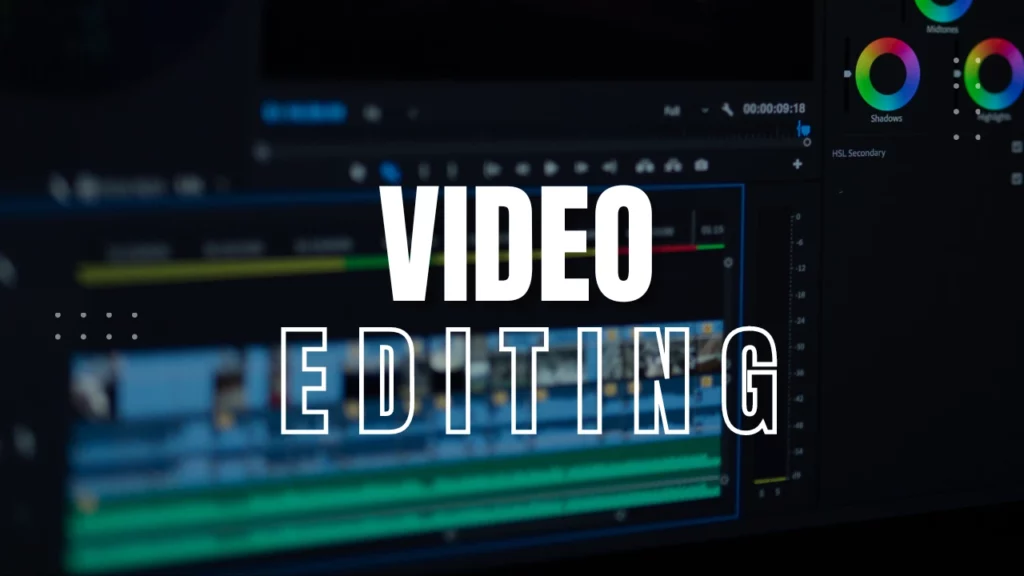Master the Art of Visual Storytelling: Become a Video Editing Specialist
As modern technology advances, video editing has become an important tool for creative expression and visual storytelling. With the right skills and techniques, you can become a video editing specialist and master the art of creating captivating stories. In this article, we will outline a step-by-step guide to becoming a video editing specialist and unleash your creative potential.
Understanding the Basics of Video Editing
To become a video editing specialist, it’s important to understand the basics of editing, such as editing terminology, different types of editing, and the different tools and software available. Some important basics to keep in mind are:
- Understanding essential terms like cut, fade, dissolve, and compositing.
- Knowing the difference between linear and non-linear editing.
- Choosing the right software for your editing needs like Adobe Premiere Pro, Final Cut Pro, and DaVinci Resolve.
- Learning how to organize your footage and project files effectively.
Learn Video Editing Techniques and Styles
Once you have a firm understanding of the basics, it’s crucial to start learning different editing techniques and styles. Some popular techniques include:
- Continuity editing: this is a traditional and straightforward style that typically uses cuts and dissolves to maintain a sense of time, space, and continuity in a piece.
- Montage editing: this style of editing is used to condense long periods and concepts down to a shorter amount of time using a sequence of juxtaposed shots.
- Cutaway editing: this technique involves cutting away from the main subject to another shot, and then back to the main subject, often used to convey a character’s reaction or emotion.
Understand your audience’s intended style and genre to tell a cohesive story and get their message across. Keep in mind that good editing can make a mediocre video outstanding and enhance the storytelling capabilities of the video.
Mastering Special Effects and Color Grading
The art of video editing goes beyond cutting and splicing scenes together. Adding special effects and color grading can elevate your video and provide an immersive experience for the viewer. It’s not about using every effect available but about using it tastefully.
Some popular effects include:
- Green screen and motion tracking
- Slow motion and time ramping
- Transition effects
- Masking and rotoscoping
Color grading can also add depth and dimension to your video. Color grading can enhance your video’s mood and tone, highlight different tones and hues, and correct color imbalance to make immersive viewing experiences.
Keep Practicing and Learning
Finally, to become a successful video editing specialist, it’s essential to keep practicing and learning. Joining online communities, keeping up with new techniques and technology, and taking courses to advance your skills will keep you up-to-date with the latest trends and styles.
Conclusion
Becoming a video editing specialist is a journey, but it can be an enjoyable and exciting one. With the right tools, techniques, and a lot of practice, you can enhance your storytelling abilities through the art of visual storytelling. Remember to experiment with new styles and techniques, keeping up to date on tools and trends while honing your skillset.
Learning Resources:
YouTube Channels:
- Filmora: Offers tutorials and tips on video editing techniques, effects, and software.
- Premiere Gal: Provides insightful tutorials on Adobe Premiere Pro and video editing techniques.
- Peter McKinnon: A popular channel covering various aspects of filmmaking, including editing techniques.
Books:
- “In the Blink of an Eye” by Walter Murch: Explores the art of film editing and its impact on storytelling.
- “The Technique of Film Editing” by Karel Reisz and Gavin Millar: Covers the principles and techniques of film editing.
- “The Filmmaker’s Handbook: A Comprehensive Guide for the Digital Age” by Steven Ascher and Edward Pincus: Offers guidance on all aspects of filmmaking, including editing.
Blogs and Websites:
- PremiumBeat Blog: Provides tutorials, industry insights, and tips on video editing and post-production.
- No Film School: Offers a wide range of articles, tutorials, and resources
If you need further assistance, feel free to Contact Us.
